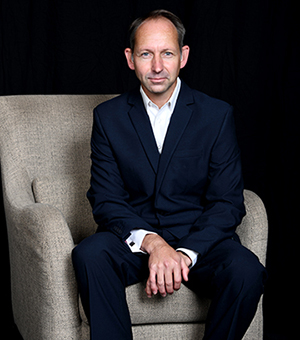
Equipped with state-of-the-art laboratories that provide students with hands-on experiences to bridge theory and practice

Prof Gerhard Prinsloo
Unisa hosts the Research and Innovation Awards ceremony annually to recognise the outstanding contributions in research by the institution’s magnificent scholars. This year’s edition of the ceremony was held virtually on 3 June 2022. Under the category Chancellor’s Award for Research Excellence, Prof Gerhard Prinsloo of Unisa’s College of Agriculture and Environmental Sciences (CAES) has been announced as one of the recipients.
Commenting about this remarkable achievement, Prinsloo says: "Academia, especially the research environment, can be a tough and challenging space. This award is an acknowledgement and recognition of research efforts and its benefits in everyday lives."
The award recognises a holistic spectrum of research activities including, among others, peer-reviewed publications, postgraduate supervision, and national and international collaborations. For Prinsloo, the award is an opportunity to create awareness about his research field, and to further extend and create networks and collaborations.
The prestigious awards ceremony affirms a statement often made by Unisa’s Principal and Vice-Chancellor, Prof Puleng LenkaBula, that the academic agenda, as the centre of the university’s endeavours, should be non-negotiable.
Watch a recording of the 2022 Research and Innovation Awards Ceremony here.
Prinsloo’s research focus is on the structure function relationships of biologically active molecules of beneficial plants using bio-analytical and bioinformatics approaches, mostly plant metabolomics. "Indigenous plants with medicinal, food and cosmeceutical applications are specifically targeted for research and commercial development," he says.
Prinsloo explains: "South Africa has a large variety of plants with medicinal properties, even though a limited number have reached the commercial market. Developing a bioeconomy draws from the strengths of indigenous knowledge systems (IKS) and aims at building sustainable enterprises." He adds: "Developing commercially viable products, necessitates quality assessment of propagated and cultivated material, as plants react towards changes in their environment, which can alter the chemical profile and associated biological activity."
Regarding propagation and cultivation research, Prinsloo states that they target an important aspect of the value chain, therefore a holistic approach is needed to determine the chemical changes to produce consistent quality starting from the field to the commercial market.
IKS and metabolomics, as unpacked by Prinsloo, are both fields that are important in the investigation of beneficial plants to developed sustainable enterprises. "Plant metabolomics is an advanced tool and relatively new research field in South Africa. Metabolomics is used in applications such as the identification of beneficial or medicinal compounds, the development of quality assessment tools and to determine how plant metabolism is affected by cultivation and external environmental stimuli," Prinsloo explains.
Prinsloo’s current projects are in the field of development of cosmeceutical species into commercial products, promotion of the health and nutritional benefits of indigenous vegetables and antimicrobial properties of plants, with a focus on antiviral activity using various analytical techniques and investment in areas such as plant metabolomics.
Regarding cosmeceuticals, Prinsloo says: "This research is important as communities do not always have a constant supply of plant material, necessitating the need for storage. They do not always have appropriate storage facilities." With a project focusing on indigenous vegetables, Prinsloo holds that it is important to involve communities in producing indigenous vegetables, as it can improve nutritional food intake as well as promoting healthy living. "The research in medicinal plants is vital to determine and understand the impact of environmental changes on the beneficial and medicinal properties of plants," he remarks.
Prinsloo advises upcoming researchers to be lifelong learners, as there is always something to learn and to explore. He concludes: "Technology is developing at an extreme pace, and it is important that one should always stay abreast of new developments and equip yourself to apply and implement new techniques and tools to stay internationally competitive."
* By Nancy Legodi, Acting Journalist, Department of Institutional Advancement
Publish date: 2022-06-07 00:00:00.0